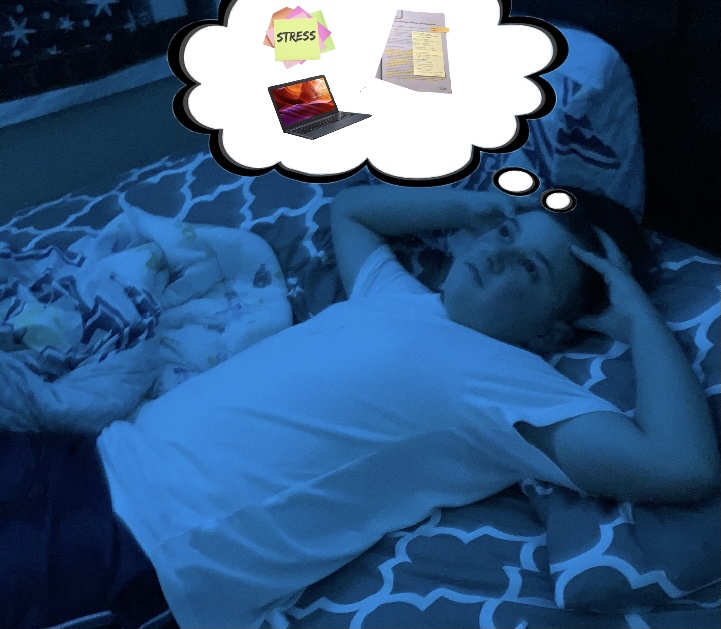Sleep proves vital in the growing bodies of teens
Student depicts examples of the things that make it hard for one to sleep.
December 23, 2020
Teenagers need the most amount of sleep, however; they often do not get enough, which leaves them drained and fatigued.
“It’s hard for me to fall asleep most nights, and I never seem to get good sleep,” said junior Cy Sheridan.
Sleep greatly affects teens because it directly contributes to how they perform tasks in their everyday life. From schoolwork to sports and extracurriculars, sleep is needed for a teen to be on their A-game. Unhealthy sleep habits can also affect long-term health issues, as problems like heart disease and obesity are both affected by sleep patterns.
According to Child Protective Services, teens need more sleep than most because their bodies and minds are in a state of quick growth. In order to feel well-rested and ready for the day, teens need between eight and 10 hours of sleep.
Many people think teens just stay up late because they think it’s cool or they stay on their phones for too long. However, this may be caused by the way teenagers’ bodies are wired.
According to an article by TeensHealth, the circadian rhythm is reset in the body during the teenage years. This reset results in the body wanting to stay up longer and wake up later.
Falling asleep and staying asleep is an issue that many teens struggle with. With the stress of student life and hectic schedules, multiple factors can cause a teenager to become sleep deprived.
One tip to help get better sleep is the creation of a schedule. A schedule can include school time and homework, any extracurricular activities, work hours, and even time to hang with friends. Setting time aside for all of these tasks and activities helps set a constant in life which, in turn, helps with going to bed earlier and the time for healthier sleep habits.
“Having a schedule to balance out the tasks in my daily life allows me to feel less stressed at the end of the day. When I feel less stressed, I’m able to not only sleep better at night, but also able to fall asleep earlier,” said junior Alexia Lemley.
Some other tips include limited use of screens and technology before going to bed, regular exercise, less caffeine intake, and a limited amount of long naps taken throughout the day.
“I try not to use my phone at least 30 minutes before I go to sleep, and I go to bed when I’m tired,” said freshman Melanie Dunaway.


